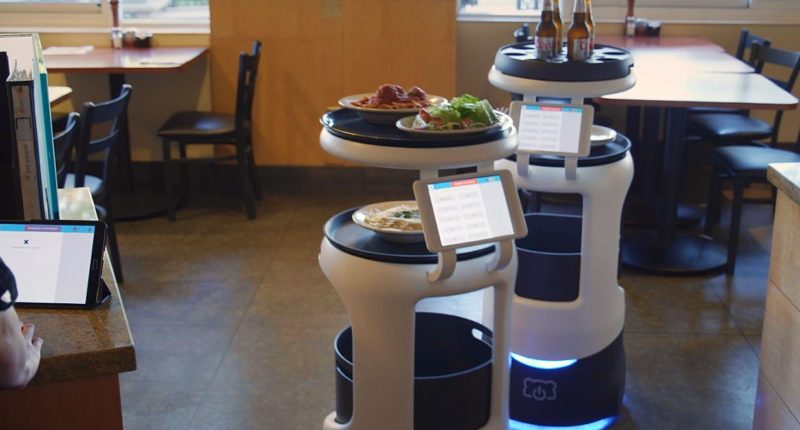Every sci fi movie ever has had a scene of robots working among humans, as an integral part of society. Who of us hasn’t fantasised about living in a world where robots do our bidding? Bear Robotics, a California based startup has took charge of making this dream come true, by trying to introduce robot waiters for waiting on tables in restaurants. The founder and CEO John Ha reported that the startup has raised $32 million at the end of the Series A round. Ha used to work with Intel as a research scientist and later went on to become technical lead at Google. Later on, he went to start his own restaurant as an on again off again business.
The round was lead by SoftBank Group, who’s been very interested in the robotics market these days, also investing in other companies like Zume.
Ha recently sat down to answer questions from Techcrunch, in which he mentioned that he entered the restaurant business as an investment plan and not because he had a burning passion for it. He then said that the business turned out to be harder than he had anticipated and due to the hardships he faced, he decided to revolutionise the restaurant industry.
On being asked about how he came upon the idea, he said,”First, me and my restaurant staff constantly discussed, ‘If we have this robot, what would it look like and what capacity and features would it need?’ I knew it couldn’t be too big; robots have to be able to move well in narrow spaces. We also focused on the right capacity. And we didn’t want to make a robotic restaurant. I wanted to build a robot that no one really cares about; it’s just in the background, sort of like R2D2 to Luke Skywalker. It’s a sidekick — a bland robot with a weak personality to get things done for your master.”
He explained how he plans to roll these robots out on leases and not as something someone can just buy. The robots will come on monthly subscriptions, just like Netflix.
He also said that the robot ‘Penny’ can play sound and ‘speak’, it’s not exactly conversational yet. The company plans to bring the robots in any place food is served, from restaurants to casinos, to houses to nursing homes.
While the robots aren’t available in the market yet, the recent $32 million investment can go a long way in making that a reality.





